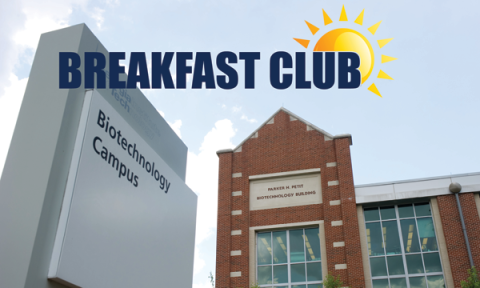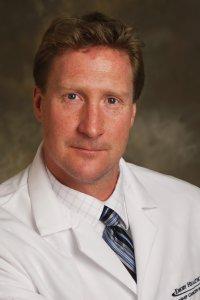event
Breakfast Club Seminar Series
Primary tabs
"Platelet lysate for Regenerative Medicine"
Ian Copland, PhD - Assistant Professor, Emory University School of Medicine
Abstract:
Following any trauma, re-establishment of barrier function (i.e. epithelialization) is a crucial factor in achieving functional recovery. Modulation of inflammation is also of paramount importance as excessive inflammation can not only impair tissue regeneration, but can also exacerbate the existing injury. Thus, an ideal therapeutic should promote both tissue healing and modulate inflammation. For immediate application an ideal therapeutic should also be readily deployable for multiple traumas with minimal training under a variety of field conditions. We have discovered that the lysate of human blood platelets collected from healthy volunteers satisfies all these criteria.
Platelets or thrombocytes are small regularly shaped enucleated cell fragments, derived from the fragmentation of precursor megakaryocytes. Platelets are primarily responsible for hemostasis, however they are also a rich source growth factors attachment factors, and enzymes that have pro-regenerative, anti-inflammatory and anti-microbial actions. Autologous platelet rich plasma (PRP) has been shown to enhance healing in a variety of settings. However: 1) absence of manufacturing standards, 2) inadequate training on preparation devices, 3) biologic variability among and 4) inability to store the PRP limits its applicability to for many combat related injuries. Furthermore the large amount of blood required to generate sufficient quantities of autologous PRP makes it use impractical of many combat related injuries. Consequently we have developed a proprietary method to manufacture pooled allogeneic platelet lysate (phPL) for regenerative medicine. Using cGMP-compliant manufacturing standards our phPL has received FDA approval (IND 14825) for the ex vivo expansion of MSCs as a cellular therapy to modulation excessive inflammation and enhance tissue recovery in patients with Crohn’s disease. Besides it use for cellular therapies, we are exploring the use of phPL as a topical solution which can be used for dermal or corneal regeneration. This lecture will cover the manufacturing and biochemical characterization of our phPL and discuss how this product can be deployed to enhance ocular tissue recovery in both civilian and military personnel.
The IBB Breakfast Club seminar series was started with the spirit of the Institute's interdisciplinary mission in mind and started to feature local IBB faculty member's research in a seminar format. Faculty are often asked to speak at other universities and conferences, but rarely present at their home institution, this seminar series is an attempt to close that gap. The IBB Breakfast Club is open to anyone in the bio-community.
Status
- Workflow status: Published
- Created by: Colly Mitchell
- Created: 03/26/2012
- Modified By: Fletcher Moore
- Modified: 10/07/2016
Categories
User Data


